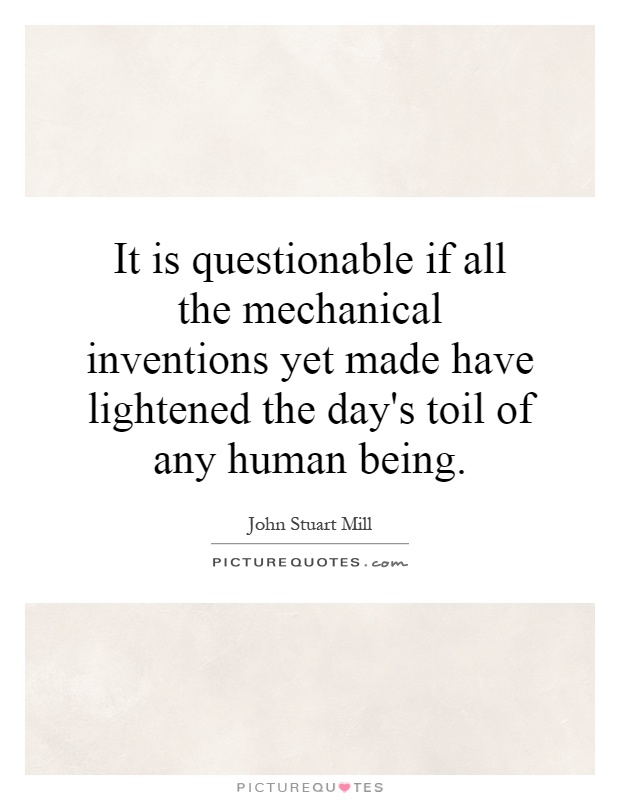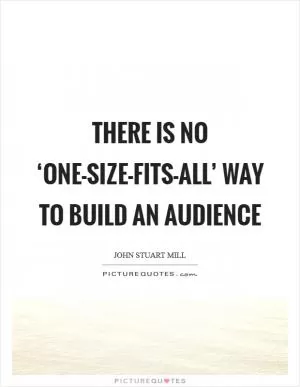It is questionable if all the mechanical inventions yet made have lightened the day's toil of any human being

It is questionable if all the mechanical inventions yet made have lightened the day's toil of any human being
John Stuart Mill, a prominent philosopher and economist of the 19th century, raised an important question about the impact of mechanical inventions on human labor. In his time, the Industrial Revolution was in full swing, and new technologies were being developed at a rapid pace. Many believed that these inventions would revolutionize the way people worked, making tasks easier and more efficient. However, Mill was skeptical of this notion, suggesting that the benefits of these inventions may not be as significant as they were made out to be.Mill's skepticism can be understood in the context of his broader philosophy, which emphasized the importance of individual liberty and the pursuit of happiness. He believed that the ultimate goal of society should be to maximize the well-being of its members, and that this could only be achieved through the cultivation of individual talents and abilities. In this light, the question of whether mechanical inventions truly lightened the day's toil of any human being takes on a deeper significance.
One way to interpret Mill's question is to consider the impact of technology on the nature of work itself. While it is true that many mechanical inventions have made certain tasks easier and more efficient, they have also led to the mechanization of labor and the deskilling of workers. This has resulted in a loss of autonomy and creativity in the workplace, as workers are reduced to mere cogs in the machine. In this sense, the supposed benefits of mechanical inventions may be outweighed by the negative consequences they have on the quality of work and the well-being of workers.
Furthermore, Mill's question raises important ethical considerations about the distribution of the benefits of technological progress. While some may argue that mechanical inventions have led to increased productivity and economic growth, it is questionable whether these benefits have been shared equitably among all members of society. In many cases, the gains from technological advancements have been concentrated in the hands of a few wealthy individuals or corporations, while the majority of workers continue to toil in low-paying and precarious jobs.












 Friendship Quotes
Friendship Quotes Love Quotes
Love Quotes Life Quotes
Life Quotes Funny Quotes
Funny Quotes Motivational Quotes
Motivational Quotes Inspirational Quotes
Inspirational Quotes